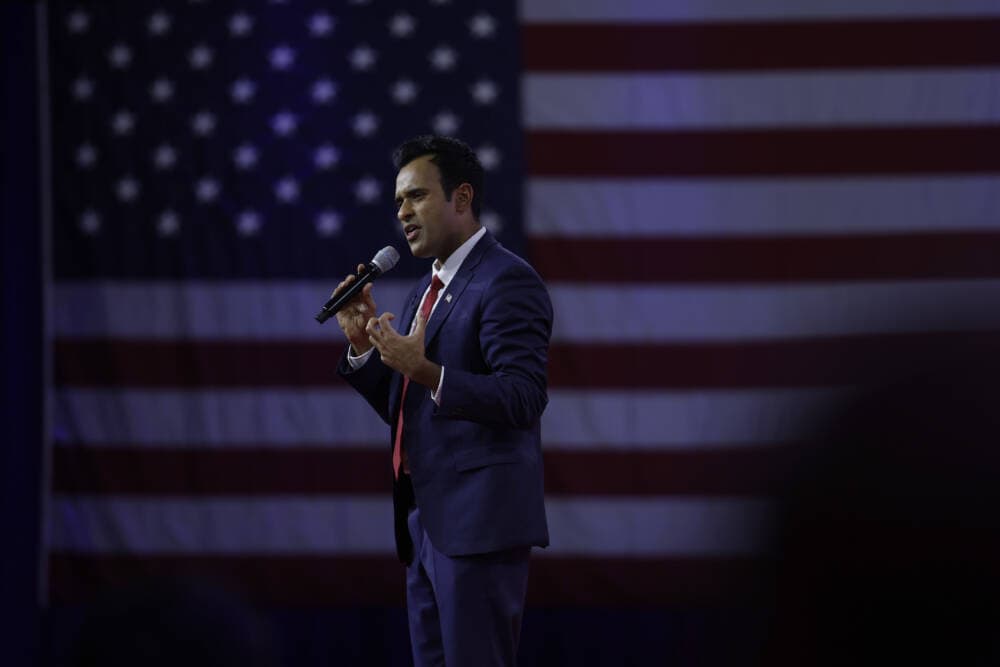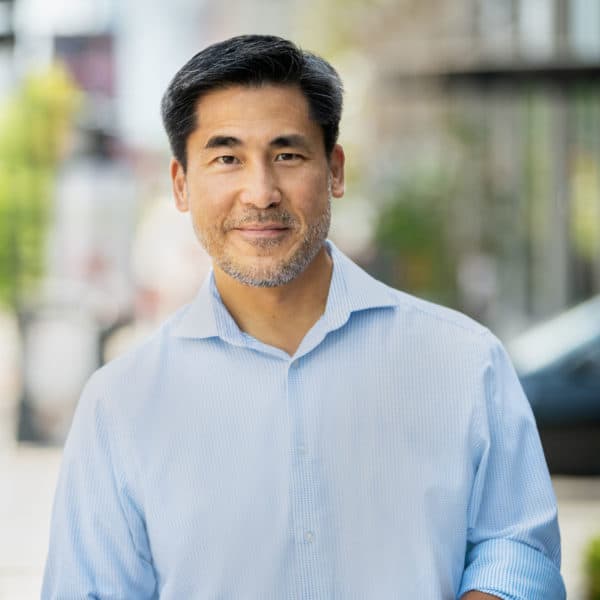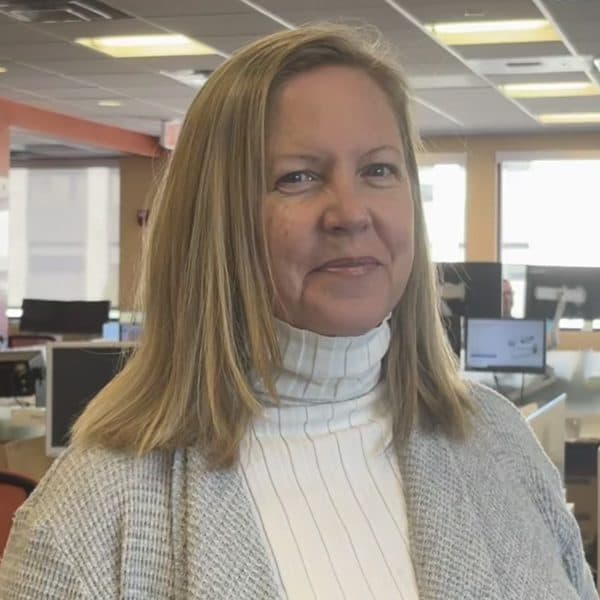Advertisement
Investor argues ESG investing is about measuring risk, not politics

Banks and financial companies have become new targets in a culture war, being slammed by conservatives as “woke.”
Conservative entrepreneur, commentator and Republican presidential candidate Vivek Ramaswamy sees environment, social and governance investing, or ESG, as Wall Street titans pushing lefty, big-government politics.
Ramaswamy emphasized how large the scope of these investment companies are by citing the lofty amount of retirement and 401k funds managed by the firm BlackRock.
“[BlackRock buys] up shares in American companies in the stock market. So far, so good. No problem,” he says. “However, the real problem emerges when they start to use that money to, say, go to Apple and say that we're going to vote in favor of a racial equity audit.”
As his argument goes, these closet Wall Street “liberals” strong-arm the companies they invest in to be politically correct.
But firms actually using ESG strategies have said this argument is a total misrepresentation.
E in ESG stands for environmental
John Streur, chairman of Calvert Research and Management in Washington, D.C., has been doing ESG investing for decades.
Just outside his office, a new D.C. Metrobus pulls away. The D.C. Metrobus system has a fleet with newer engines from the Cummins company, and Cummins has a high ESG score.
“Cummins has consistently innovated on fuel efficiency, and Cummins is also a leader in helping to develop hydrogen fuel technology,” Streur says. “Green hydrogen is a potential fuel of the future.”
The idea is to bet on companies Calvert Research and Management thinks will be around long-term. And to bet against many fossil fuel companies that Streur thinks could be endangered.
“Oil, when burned, creates carbon emissions, which are held to be responsible for warming and climate change,” he says. “Therefore, there are lots of innovators, lots of initiatives to try to create a different energy system.”
Advertisement
Think back to a few 100 years ago: If thought energy only comes from burning wood, then they would have missed out on coal and then oil.
“The world has been through a transition from wood to coal and then coal to oil. Now we're going to have competition from renewables,” he says. “Companies that did not adapt well to electric motors, for instance, and stayed with steam engines struggled and went out of business.”
Streur stands across the street from a church with a grassy space and impressive weed management. The dominant product in the lawn maintenance market is Roundup, made by Monsanto, which is now owned by Bayer.
Roundup is on Calvert Research and Management’s “naughty” list. The World Health Organization says Roundup’s main ingredient “probably” causes cancer, though the Environmental Protection Agency disagrees.
“The company continues to be subject to large and ongoing lawsuits that are resulting in significant liabilities,” Streur says. “The second problem with Roundup in particular is that it has been used so heavily that the weeds that it seeks to kill have evolved quickly. And there are now Roundup-resistant weeds.”
ESG investing is about companies and their risks, not their politics. Streur says his investors know they can’t change the world; instead, they’re trying to help companies adapt to the world as it’s changing.
Calvert Research and Management and other ESG investors have to deliver competitive returns to investors.
“Calvert indexes and Calvert actively managed strategies that have produced competitive investment returns, often market-beating investment returns," he says. “Performance is first and foremost.”
Calvert Research and Management says its largest fund has lower fees than most comparable funds, and that it’s in the top 10% for performance.
S in ESG stands for social
The “social” aspect refers to how a company treats its workers — are there any labor abuses in its supply chain?
Home goods retailer Williams-Sonoma has a high ESG score with a supply chain that is considered responsible. Streur at Calvert Research and Management says dodgy supply chains are business risks.
“If one company is dealing with a supply chain that is violating local environmental laws, human rights violations, it's making money because that supply chain is cheap and its costs are low, versus a second company that has a high quality supply chain,” Streur says.
A company cutting corners could invite workers to revolt, damaging its reputation. Or if it pollutes the water nearby, a company could be sued or fined. That costs money.
“Good suppliers that are adhering to local regulations may be a more expensive supply chain today, but it's going to be there for 20 years,” Streur says. “That's what we look for. In the case of Williams-Sonoma, they've got excellent policies in terms of what their supply chain looks like.”
ESG investors hire specialty researchers and then buys that information to learn about companies and their risks. Investors then turn that information into data that’s used to rank companies. These metrics help investors pick companies they hope will bring better returns in the long run.
G in ESG stands for governance
Governance is how well a company is run. And for this part of ESG, the toy company Hasbro is a positive example. The company’s board is diverse enough to get the attention of Calvert Research and Management research director Hellen Mbugua.
“If you have people who think alike, do not have diversity of thought or a diversity of color or ethnicity, I think you might not be able to really, in the best way, serve the communities in which you operate,” Mbugua says.
Research from Standard and Poor’s found that firms with female executives perform better than the market average, and the same is true for companies with gender diversity on their boards. On the flip side, a lack of diversity could invite business missteps. Mbugua points to what happened at Adidas in 2020.
“The HR person was asked about diversity, especially around the George Floyd time period,” Mbugua says. “They said, ‘just the whole talk about race is noise.’ And then I think they put on a couple of products that were not very sensitive to certain parts of the community.”
One of those products that rang off-key was a sneaker for Black History Month, which was entirely white.
“And once we started digging into this, then you realize that there was a lack of diversity,” Mbugua says.
ESG critic Vivek Ramaswamy is not convinced by this argument. He thinks the data connecting diversity to profits is “cherry picked.”
“For example, there's no such data as it applies to sexual orientation because that data has never been collected. Or with respect to race, the evidence doesn't exist yet,” he says. “Yet the diversity agenda as part of the ‘S’ prong of ESG, still demands those things too.”
There are other knocks on ESG investing, such as high fees for some ESG funds, which Calvert Research and Management denies. Another criticism is that companies can overstate, or sugarcoat, how environmentally and socially responsible they are, which is called “greenwashing.”
John Streur of Calvert Research and Management admits that it’s a challenge to know whether specific data on pollution, labor issues or who’s running a company actually matter to the bottom line.
“That's the knock on ESG data. There's a lot of data out there in the ESG world that actually does not matter to long term investment decisions,” Streur says. “It either lacks the quality or it's not relevant.”
According to the investment team at Calvert Research and Management, when ESG investing works, and translates into investment returns, it shows that there is a clear business case for ESG.
This segment aired on April 27, 2023.


